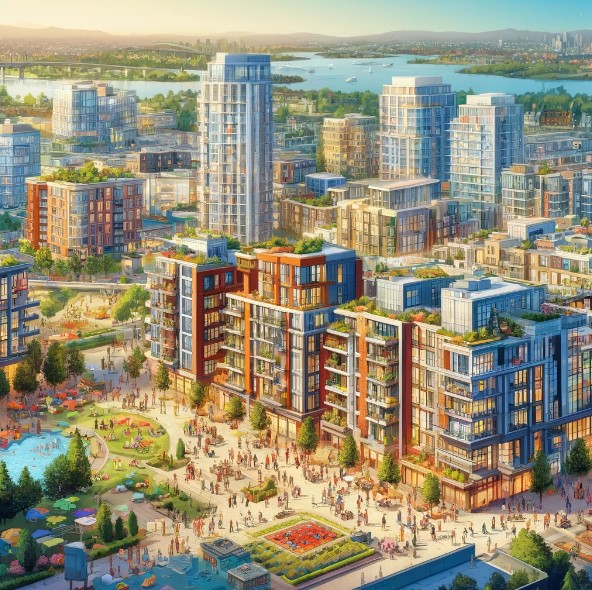
When considering the purchase of a condo, savvy buyers think beyond the initial appeal and amenities to the property’s potential resale value. Understanding the factors that influence this can make the difference between a wise investment and a financial misstep. This blog post will explore key elements affecting condo resale value, including location, size, amenities, and the broader real estate market’s health.
The Prime Driver: Location
Location is the cornerstone of real estate value, and condos are no exception. A condo in a desirable area—characterized by access to quality schools, public transportation, employment centers, and amenities like shopping, dining, and green spaces—will generally appreciate more over time. Urban centers and waterfront locales often command higher prices due to their convenience and appeal. Conversely, condos in less sought-after neighborhoods may not see as much appreciation, emphasizing the adage: “location, location, location.”
Size Matters
The size of a condo plays a significant role in its resale value. Generally, larger condos attract a higher price due to the increased living space, which is a critical factor for buyers looking for long-term homes. The number of bedrooms and bathrooms also influences resale value, with two-bedroom units often being more desirable than one-bedroom ones for their versatility. However, it’s essential to balance size with cost and location; a larger condo in a less desirable area may not appreciate as much as a smaller unit in a prime location.
The Appeal of Amenities
Amenities can significantly enhance a condo’s allure and, by extension, its resale value. High-quality, well-maintained amenities like fitness centers, pools, community gardens, and concierge services can make a condo stand out in a crowded market. Security features such as gated access and 24-hour surveillance also add value by appealing to safety-conscious buyers. However, it’s worth noting that luxury amenities can lead to higher condo fees, which might deter some buyers. The key is finding a balance that appeals to a broad market.
The Health of the Real Estate Market
The overall health of the real estate market is a crucial factor that affects condo resale value. In a booming market, condos, like other properties, are likely to appreciate. However, in downturns, condos can be among the first property types to see a decrease in value, as buyers opt for single-family homes if prices become comparable. Understanding market trends and economic indicators can help buyers time their purchases and sales to maximize investment returns.
Additional Factors Influencing Resale Value
Condition and Upkeep
: A well-maintained condo is more attractive to potential buyers. Regular maintenance and timely upgrades can enhance resale value.View and Unit Location:
Units with appealing views or those located on higher floors typically sell for more. Proximity to elevators, stairways, and other building features can also impact desirability.Customization and Upgrades:
High-quality, tasteful upgrades can increase a condo’s appeal. However, overly personalized renovations may not always add value if they don’t align with general buyer preferences.Community Health:
The financial and operational health of the condo community and its corporation can influence resale value. Well-managed communities with healthy reserve funds and low conflict levels are more attractive to buyers.Marketability:
Factors such as the ease of renting the unit can also affect resale value, offering an income potential that might appeal to investor buyers.
Strategic Buying for Resale
To maximize potential resale value, buyers should consider the following strategies:
Research Thoroughly:
Understand the neighborhood, the building, and the unit. Look into past price trends and future development plans for the area.Consider Broad Appeal:
Choose condos with features that appeal to a wide range of buyers, such as functional layouts and neutral finishes.Evaluate the corporation:
Assess the corporation’s financial health, fee structure, and management practices, as these can impact the community’s appeal and, consequently, resale values.Time Your Purchase:
Buying in a buyer’s market and selling in a seller’s market can maximize your investment’s return.
Conclusion
The potential resale value of a condo is influenced by a combination of factors, including location, size, amenities, and the overall health of the real estate market. By understanding these elements, buyers can make informed decisions that balance immediate needs with future resale potential. Investing in a condo is not just about finding a place to live; it’s also about making a smart financial decision that will pay off in the long run. Careful consideration of the factors outlined above can help buyers navigate the complexities of the condo market and secure a property that not only meets their current needs but also offers significant resale value in the future.
